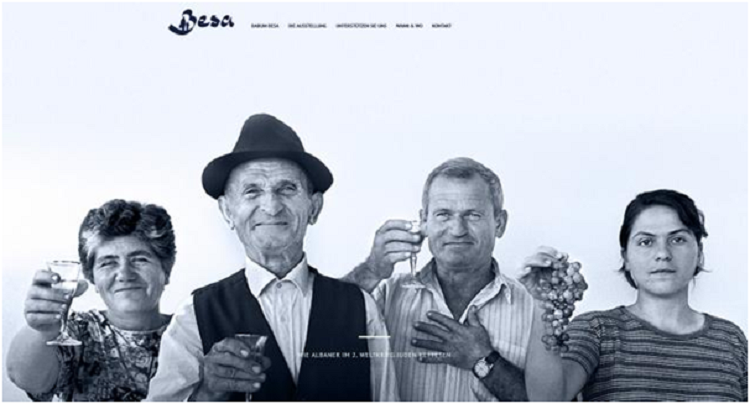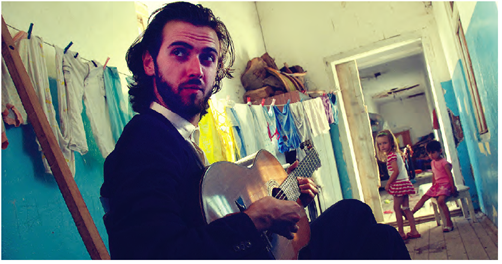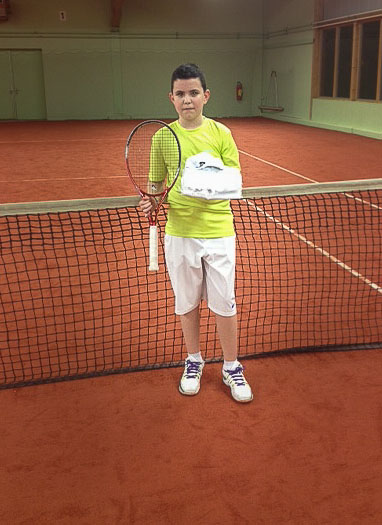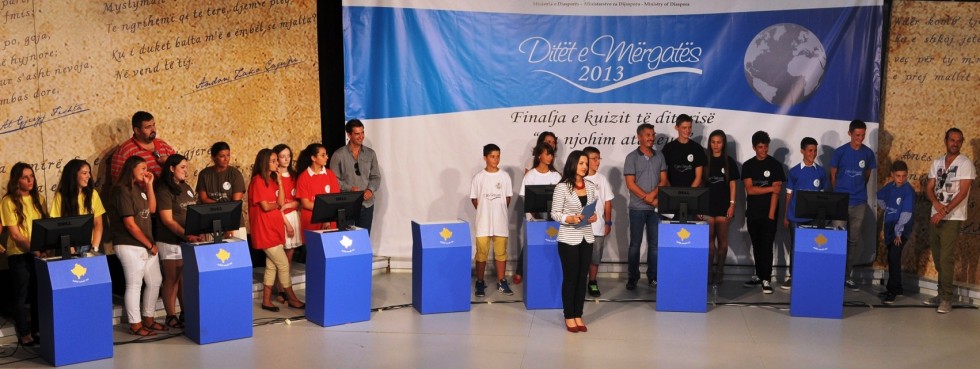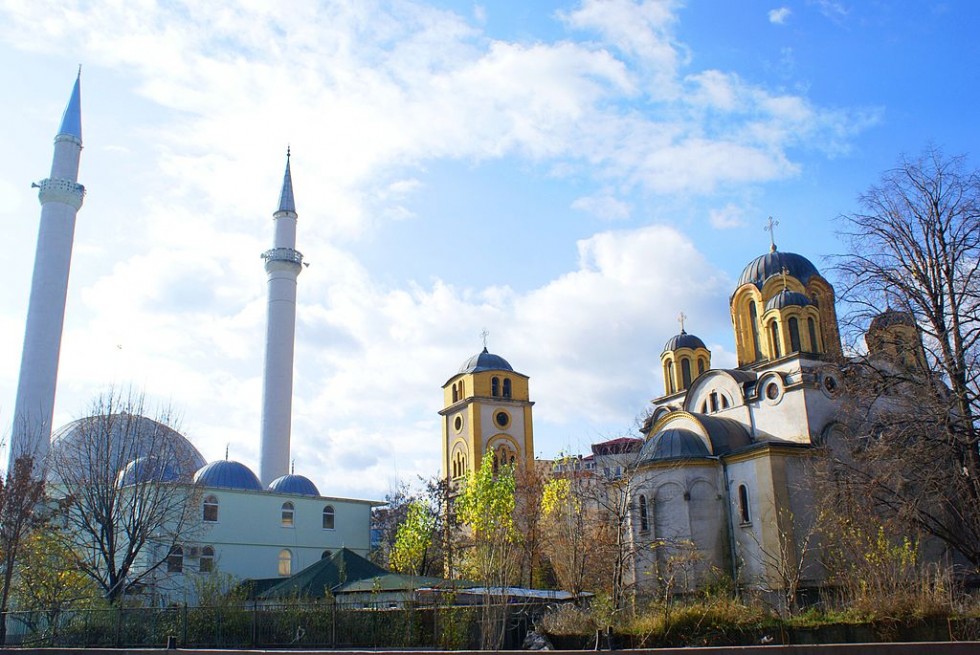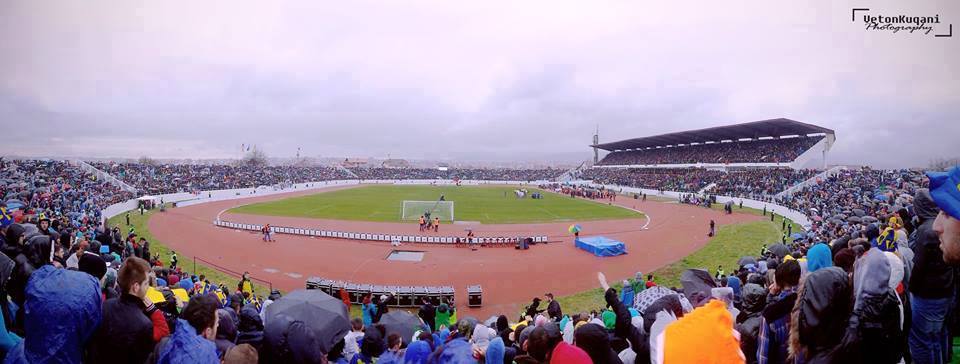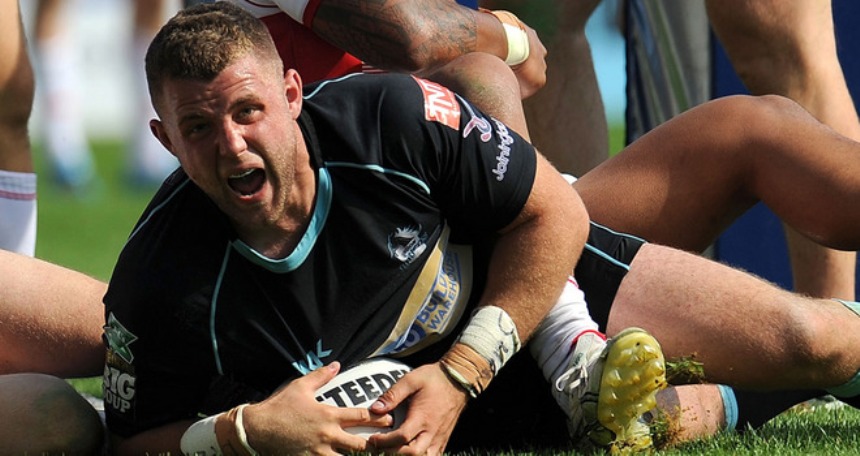Kosovo has been a state for six years now, but recognition is dragging. That’s why the first international football match against Haiti turned into a public festival. Our great report from “11FREUNDE#149 (11FRIENDS#149):
“A Haitian flag!” Alban shouts. ”Wouldn’t it be great if we had a Haitian flag right now?”
He walks through the city of Mitrovica with big steps, thin rain drops fall from the sky; people are already gathered in front of the old store and have started drumming and singing and Alban Muja is happy to join in. Without an opponent you can’t have a football match, yet there are not many who want to play against Kosovo. Haiti, however, is ready to be Kosovo’s opponent and ironically proves to be its ally, with this match being the small Balkan country’s ticket to experiencing its first official FIFA match. For six years an independent state but not a part of the international community, not even in terms of football.
Not only football, but a historical event!
“Man, welcome to my home city!” Alban says as he steps out of his rusty Fiat Punto with squeaky windscreen wipers. He drove 50km from the capital Prishtina to Mitrovica, but his arms are wide open, as if he’s embracing the world. A happy Kosovar with a flat cap, a full beard and colourful scarves, a cigarette in his right hand, his phone in his left. Every five minutes someone calls: “Where do we meet, are you already on your way?” On the clipboard above the glove box is the sports magazine with the title in capital letters: “Let’s go, Kosovo!”
“It’s not just a game,” Alban says. “For us this is a historical event, especially for me. I know the stadium, I played myself there.”
It’s raining on the morning of the historic day, fogging up car windows and creating brown streams that flow through the streets. But the weather isn’t necessarily a sign for anything. Today Alban skipped university, though it’s not his first time.
Alban Muja, born September 10th in Ksovska Mitrovica is one of the best known artists of his young country. Last year in May, the national gallery in Prishtina dedicated a solo exhibition to him, and his name was written on billboards all over the country. Not that he hasn’t been famous before. Walking through the streets of the capital city, barely 5 minutes would pass without his having to pause for “Hello, how are you? Si jeni? A jeni mire?”
Muja’s art says much about Kosovo: He shot photographs of the nine boys who carry the name Tonibler, named after Great Britain’s former Prime Minister Tony Blair. (In Kosovo, Blair is revered as saviour, just like Bill Clinton, for whom Kosovars sculpted a statue and named a street after.) Alban interviewed the young woman whose father named her Palestina.
One of his pieces shows the Ibar Bridge of his home town, which no one wants to cross anymore. He called it the “Museum of Contemporary History” because “it does not connect,” instead, “it divides.” The bridge with the elevated wall in the midst of its pathway has become Mitrovica’s symbol. Mitrovica, divided between Albanians in the South and Serbs in the north also symbolizes the long hurdles that Kosovo still has to overcome. Serbia does not recognize the independence of its former province.

Only confederation members can become FIFA members. And only UNO-members can become UEFA-members. That’s the Regulation.
That’s why only three flags are to be seen at the old Trepca’s stadium: Haiti’s red flag, FIFA’s blue flag and the yellow fair-play-banner. The left pole, however, remains empty; that was the deal. “But I have one!” Alban shouts and swings his little paper flag, which they distributed to whomever wished to have one. And then the fireworks begin; blue and yellow powder shoots into the sky right behind the tribune, supported by loud firecrackers, and people get their phones ready. The last cannon beat is still resounding when the two teams start walking into the muddy playground. 11 Kosovars dressed in white; it looks beautiful in the light of this grey day.
As if the whole Country was playing
“It feels so great,” says Enis Alushi, “as if we weren’t playing, but instead the whole nation.” The day before the game, Enis , the 28 year-old midfielder in the first league of FC Kaiserslautern, is sitting on the headboard in one of Hotel Emerald’s rooms. That’s where the Kosovo team resides, 15 kilometers outside of Prishtina. “Actually we are not supposed to give interviews,” he says.
So the meeting has a secretive vibe. The room is actually Albert Bunjaku’s room, another FCK player. He enters the room after a few minutes with a coffee cup, dressed in a white jacket that has “Kosova” written on its back.
“When you’re a kid you’re not a politician”
It takes about an hour, including pictures and lunch. There is not much time. It’s not easy to get football players to talk about serious subjects. Already in their teens, they are trained to talk without saying much. But politics is inevitable. Even the stadium is named after Adem Jashari, Kosovo’s former KLA-commander. He is respected as a war hero and martyr. The stadium is located on the shores of the Ibar River and its seats are green.
“Politics do not play a role for athletes,” Enis states at the beginning of the interview. “But we know that politics have been discussed a lot in the past years in order for us to be able to play in this stadium.” Just like Alban Mulaj, Enis also enjoys coming back to his home town. Enis was born in Mitrovica on 22nd December 1985. He grew up in a house, but after 8 years of living in it, his parents packed their belongings overnight and decided to set out for the great land of promising hope, Germany, because “there is no way we’ll find happiness here.”
The house that Enis grew in does not exist anymore; at least he perceives it as such. The house lies in the Serbian part of the city. “Up to this day, we can’t set a step into our old apartment,” he says. The Serbs in the north do not recognize the government in Prishtina. They want autonomy, or better yet, to be part of Serbia. Even on game day you see tanks, “Carabinieri,” on both river sides. “I remember my school friends,” says Enis. “From that day on, I’ve never seen them again. It was a mixed school, and I hung out with Serbs, as well. When you’re a kid you’re not a politician,” he notes.
Of course today all politicians have come; they don’t want to miss out on the match. Prime Minister Hashim Thaci even showed up to the final training which took place right next to the brown coal power station. The power station feeds all of Kosovo’s Energy Needs. “You are our pride,” Thaci proclaimed to the players. “You are our pride, welcome home.” “This is so pathetic,” one of the local photographers remarks. “Well, elections will be held soon,” replies another.
Reality is often darker than the smoke from the power plant; the country lives off of the international community and remittances sent by exiled-Kosovars. Half a million Kosovars live in Germany and Switzerland. EU support money, about 70 million euros a year, flows into Kosovo. Transparency International’s corruption index ranks Kosovo on 111 out of 175, together with Ethiopia and Tanzania. It only gets worse if a country does not appear on the list at all.
“Maybe it a small sign to other nations”
“I didn’t even have to think about it,”Enis said. “I already knew when I got the offer, I’d say yes.” And now he’s running on the deep grass down there, his knee socks full of mud. He just straddled after a hopeless football, right in front of the side line he manages to get a hold of the ball. Kosovo’s number 5, Enis, now runs for the left midfield, one, two, three, four steps over and 17,000 Kosovars lift their voices. A stark contrast to the first minutes of the game which they spent calmly in the rain. For everyone, this is their first experience.
“Kosova! Kosova!,” now they shout. Behind the opposite fan curve are the hills of North-Mitrovica on which you see houses made out of red brick. On the right side you see the city’s emblem, the huge stone lore made out of concrete. Trepca which stores lead, zinc, silver, gold and nickel are located exactly between north and south.
“Maybe it’s a small sign to other nations,”Enis says shortly before lunch, “to those that still refuse to recognise us. A sign that we don’t give up, that we want our recognition and that out of all places in Kosovo we celebrate our debut right here.”
“Mitrovica used to be multi-ethnic,” says Alban. “Twelve to 14 percent were non-Albanians. Division between north and south was out of question; this word did not even exist in our vocabulary.”
Alban recalls the moment when he noticed that something had gone totally wrong. One night on his way home, as he was standing on the Ibar Bridge which he used to cross on a daily basis, three policemen stopped him. “What are you doing here so late at night?” the Serbs asked as Alban apologized for his poor Serbian skills. That’s when a policeman slapped Alban in his face. “Make sure to improve your Serbian skills next time,” they said and let him go. But this incident wasn’t the first experience that made a life-lasting impression on the young Alban.
“All men sorted them out”
The words are still omnipresent. “Artist, draw me a portrait!” the commander said to Alban’s father. “Otherwise … you know. An order is an order.” The father drew the picture with chalk on the black board of his class room, which had been turned into a detention camp. A beautiful portrait and his father was not sorted into the group four men who went missing forever. “I did not recognize my own father,” Alban said, “He lost 20 kilos during his time in school. I learned a lot during the first six months of 1999. I learned how strong a man can be, stronger than a stone.”
“I was 18, but they took me for 16,” he says. “My parents cut my hair the day before, so I’d look younger. They sorted all men according to age, from 18 to 55, but not me, not me.”
Criticising the game!
“Duam fitore” Alban shouts together with the other 17,000, his cigarette in the corner of his mouth. “Duam fitore!” “We want victory!” He is standing in a puddle, his leather shoes soaked with water. Kosovo’s team carries its audience; the team gets better and better toward the end of first half. But even the best opportunity, a quick counterstroke, initiated by Enis and taken over by Albert Bunjaku does not lead to a goal. One of the opponent’s legs got in between and stopped the attempt. “Huuuuuuuu!” the audience shouts.
The game is accompanied by controversy – even in Kosovo
The game is followed by controversy even in Kosovo. Some say there is only one national team (Kombëtare), and that’s the Albanian national team. Some fans prefer driving to Albania where Albania is going to play against Malta on the very same day. “Albania has always been my team, as well, but being able to cheer for Kosovo’s team is even more moving” says Alban.
Alban Meha will shoot a dream goal against Malta that very same evening. Meha was born in Mitrovica, as well, and plays in Germany for SC Paderborn. None of the Albanian national players came to the game, neither Xherdan Shaqiri nor anyone else from the Swiss team. The World Cup is coming soon, and their careers have always taken place far away from home. Swinging the Kosovar flag in the Wembley Stadium is easier than giving up one’s life for a team whose future still stands in yellow stars. Some say that’s absolutely reasonable. Others question their integrity.
Will Shaqiri be jealous?
Those currently standing in the Adem Jashari Olimpic Stadium could not care less at this very moment. The rain has stopped, the Kosovar team is performing well. They fight for the ball, and barely any of their shirt numbers are visible; the only thing missing is scoring a goal. But didn’t Haiti have a tied game with Italy last year? La Ola is rolling over the Tribune. “Kosova! Kampion!”
“Maybe Shaqiri and the others will be a bit jealous of us when they see the game,” Enis had said earlier in the hotel room.
They showed their will
You can’t push your luck; you need patience as a small country and as a football team. At the end it is a well-deserved and well fought for tied match for Kosovo. They showed their will, they enchanted the audience, but the future needs time. They have to be patient.
Alban Meha walks through the elbowing crowd, while he swings a folded umbrella over his head just like a tourist guide. The umbrella has “European Union” written on it, but you can’t see that any more. “Would have been better if it had not rained, but oh well. Now let’s go home so we can make it to the second game, the game where Albania is playing.”
All that remains is a proud little paper flag, which the rain has glued on the south curve’s seat of the Stadiumi Olimpik.
This article was originally posted on 11freunde.de and translated from German-English by Albina Makolli.
